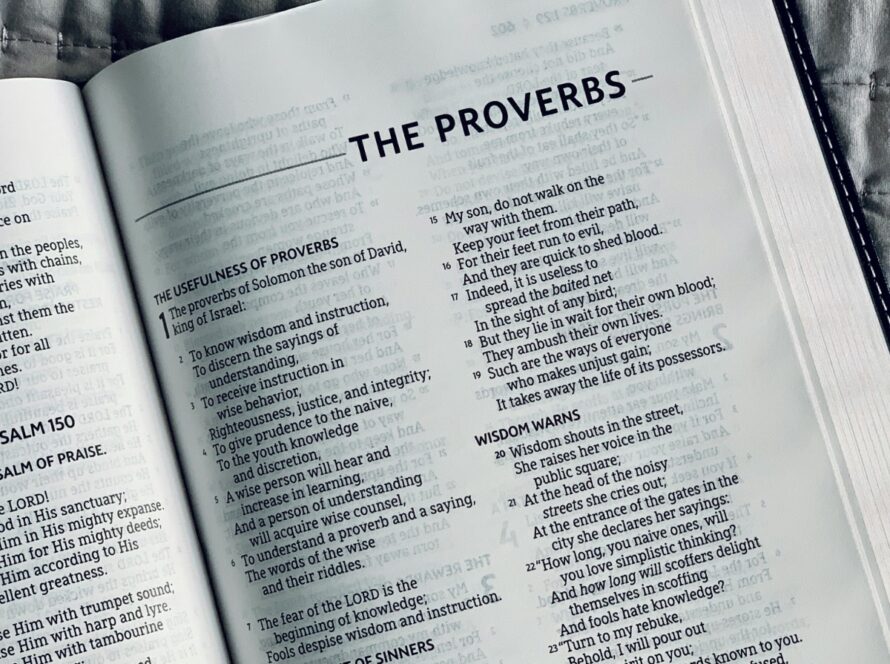“There is nothing better for a person than that he should eat and drink and find enjoyment in his toil. This also, I saw, is from the hand of God,” (Eccl. 2:24)
This weekend, we considered the wisdom of Qoheleth (The Teacher) as he meditates on the mysterious vapor that is our lives here under the sun of a cosmos under curse. In Ecclesiastes 2:24 (See above), we are encouraged that there are simple joys to be enjoyed even in this fallen existence. The key to those simple joys is receiving them “from the hand of God.”
In the book of Luke, Jesus tells a parable of a rich man who was enjoying a rich life.
“16 And he told them a parable, saying, “The land of a rich man produced plentifully, 17 and he thought to himself, ‘What shall I do, for I have nowhere to store my crops?’ 18 And he said, ‘I will do this: I will tear down my barns and build larger ones, and there I will store all my grain and my goods.” (Luke 12:16–18)
Jesus tells this parable in order to teach us that we must not turn the good wisdom of Qoheleth into an excuse to give free rein to our naturally covetous and envious hearts. You see, there is a danger in the wisdom of Ecclesiastes. The danger in this particular wisdom is that we take this encouragement to enjoy the simple pleasures of life and turn it into an excuse to amass the simple pleasure in life. We say to ourselves something like, “I’m not rich, I am content with these simple things. I live like everyone else around me.” When we have enough in our retirement accounts to enjoy our version of “simple pleasures” until we are 95 years old. Jesus wants us to see the sin in our hearts. He is intent on making us holy not happy.
Jesus continues telling the parable: “And I [the rich man] will say to my soul, “Soul, you have ample goods laid up for many years; relax, eat, drink, be merry.”’” (Luke 12:19) Jesus puts the words of Qoheleth in the mouth of the rich man. The rich man takes the words of Ecclesiastes and turns them upside down. Qoheleth puts the exhortation at the beginning. “There is nothing better for a person than that he should eat and drink and find enjoyment in his toil.” Then he puts the ground clause at the end. “This also, I saw, is from the hand of God.” Notice the drastic difference in the words of the rich man. He leads with the ground clause. Why should he “relax, eat, drink, and be merry?” His answer is, “Soul, you have ample goods laid up for many years.”
The rich man has forgotten God. He has received wisdom from God and made it into an excuse for his lazy, foolish reliance on himself. He is enjoying his own resources, not God’s resources. (We don’t have time to delve into the other difference. Can you spot it?) This foolish rich man has taken God’s wisdom and twisted it to serve his foolishness, and the last sentence of Jesus’ parable points that out.
“20 But God said to him, ‘Fool! This night your soul is required of you, and the things you have prepared, whose will they be?’ 21 So is the one who lays up treasure for himself and is not rich toward God.”” (Luke 12:20–21)
It is wisdom to find joy in the simple pleasures in life as kind gifts from God. It is wisdom to lean into the small kindnesses that the Sovereign of the Universe sends your way as undeserved gifts. Enjoy those things! They are from the hand of God. It is utter foolishness to enjoy the “simple pleasures” in life as though they are not gifts. We humans are easily lulled into a kind of idiotic gazing at what we have provided for ourselves. Then we rest our souls in our own pitiful provisions.
Where is our rest and enjoyment secured? This rich man should have seen the overabundance that was provided by the hand of God and given it all away. He should have said, “I have much more than I could ever need for many years, where can I lavish God’s good gifts on the needs of others?” This is the way of the heart that is resting in God and not in his earthly goods. This is the voice of one who sees the great danger of wealth to the human heart.
In Christ Alone,
Pastor Charles



